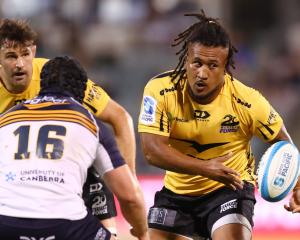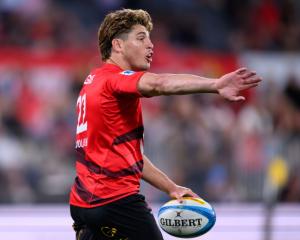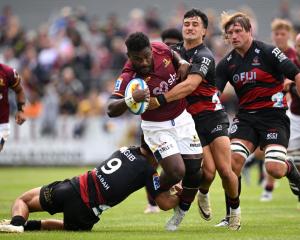
But Reid admitted a better effort on the field might not have led to the national union making moves off the paddock.
The New Zealand Rugby Football Union announced earlier this month it would appoint a new board to the Highlanders and also financially underwrite the struggling franchise for the next two years.
The new board would consist of three NZRU-appointed directors, three appointed by provincial unions and one appointed by Dunedin City Council.
Reid hoped the new board would be in place within the next two to four weeks and get on with business for next year. It would always be good to get new voices around the table, but that was not a reflection on the current board.
As the New Zealand Rugby Union owned the Highlanders franchise it was in its interest to protect the business, Reid said.
Reid, though, admitted the franchise was not generating enough income, and that, coupled with the tough economic times, meant the New Zealand Rugby Union had to act.
"It is just simply that we are not generating enough income. We are the most frugal franchise by a considerable margin. Our costs would be at least 20% less than the next cheapest New Zealand franchise," Reid said.
"It's not about an expense blow-out. Simply, we are in the smallest market and we do not generate enough income."
He declined to state the size of losses by the franchise in the past two years but admitted it was considerable.
Reid said with the Super 14 hosting agreement ending after 2011, the most the national union could do was underwrite the franchise for two years.
He said the Otago union would continue to run the franchise but said there were "no promises in life."
"But I don't think they are going to move the franchise. If you transfer the franchise, you are simply transferring the problem. It is not limited to us. Look at the NPC. There are unions who have been helped out by the NZRU and now they have gone one step up the ladder."
Reid said it was in the interest of the national union to have teams spread across the country.
"It's like any business. If you want to have teams in places where people can come through and produce All Blacks, then you might have to help them out from time to time."
With five games to go this season, the Highlanders were sitting in seventh with a real crack at the semfinals.
"If we had won at least two of those games, then we could have been in with a real show and the crowd would have turned up. And it would have showed the union we had made progress."
The southern franchise lost its last five games to finish 11th, the same position as last year.
He said the professional rugby model was still basically working the same as when it was introduced in 1996, and maybe it needed to change.












